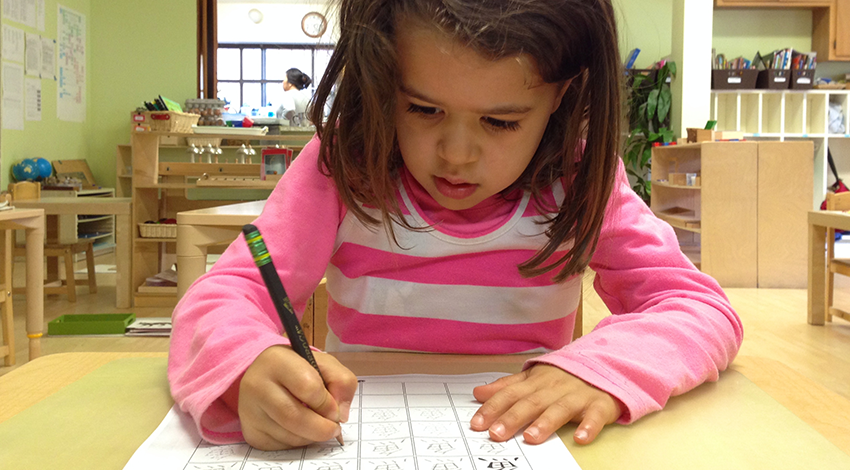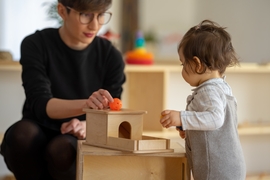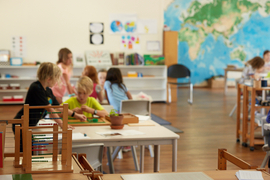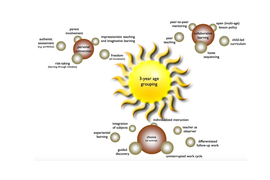
In a Montessori classroom all children work at their own pace and rhythm, taking into account their interests, strengths and weaknesses. This means a child with learning difficulties or a “gifted” child can be in the same class as they are able to work at a level that meets their particular needs.
One of the key characteristics of Montessori education is that it supports individualised learning. Each child has a tailored programme allowing children to work at their own ability level at a pace that is suitable for each of them as they experience their own learning pathway.
One of the roles of the Montessori teacher (or Director) is to guide each child on this journey: to present or offer new work when the children are ready, to provide time and opportunity to work through it until they have understood the concept or mastered the skill, then to offer challenges to engage them further.
The three-year age grouping found in Montessori classrooms also supports this, allowing children to learn from older or more experienced children and the opportunity to mentor classmates. This fosters social development and builds a culture of cooperation rather than competition. In this environment, children are not stigmatised as being “behind” or “ahead” of their peers. They have the opportunity to mix with a wider range of children, both socially and intellectually.
The classroom also allows the child to work with different peer groups in different subject areas. This can be organised according to ability as well as interest levels, helping to further scaffold each child’s learning. Experiences in learning are satisfying, fulfilling and engage the children.



